Instagram: @flemboyant_flemingo, Email: caitlinannflemingartist@gmail.com
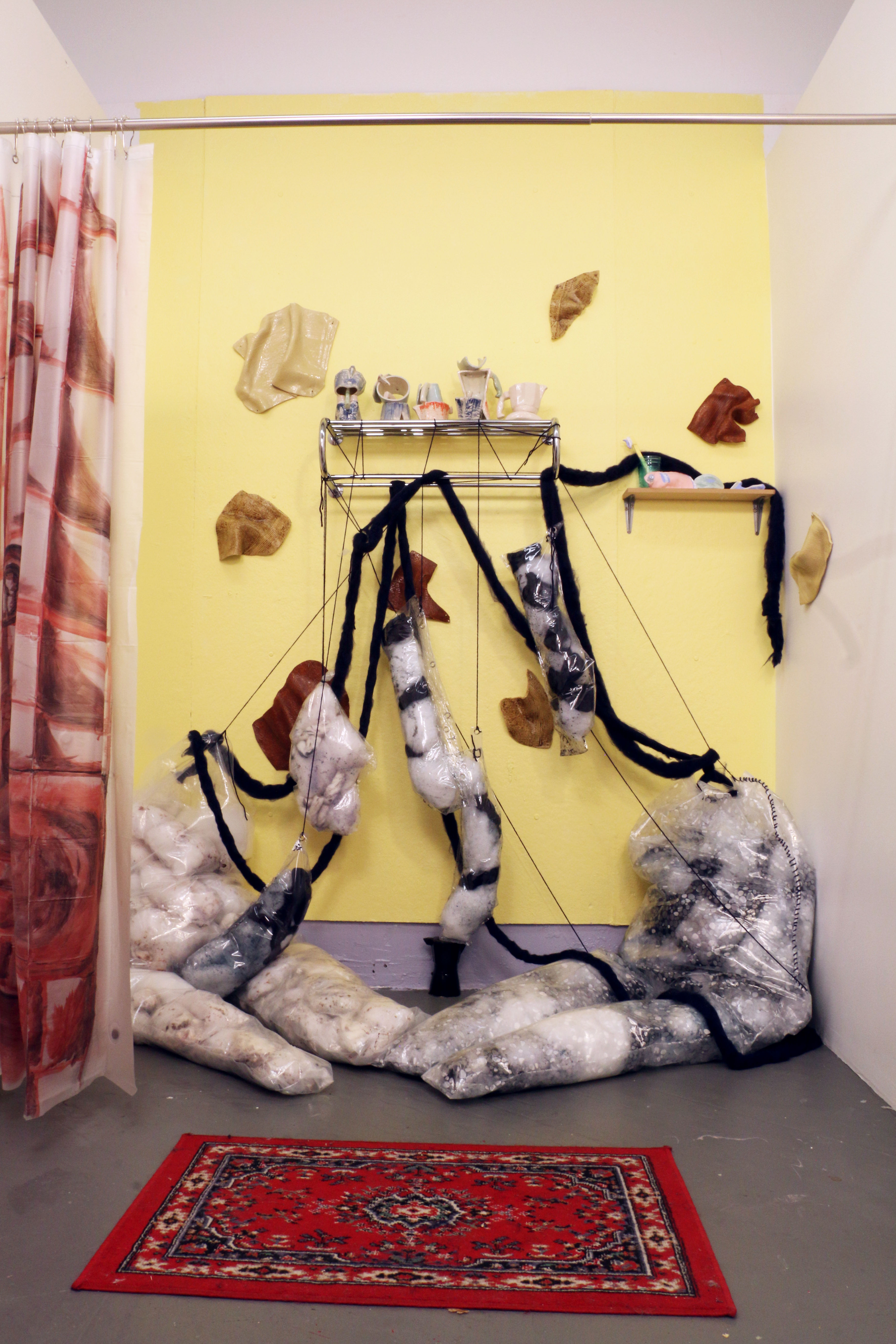
Liminal
Installation
Dimensions vary
2019
“Liminal” is a full studio installation comprised of the number of artworks that make use of ceramics, vinyl, poly-fill, wool, yarn and found objects.

Liminal
Installation
Dimensions vary
2019
“Liminal” is a full studio installation comprised of the number of artworks that make use of ceramics, vinyl, poly-fill, wool, yarn and found objects.

Liminal
Installation
Dimensions vary
2019
“Liminal” is a full studio installation comprised of the number of artworks that make use of ceramics, vinyl, poly-fill, wool, yarn and found objects.
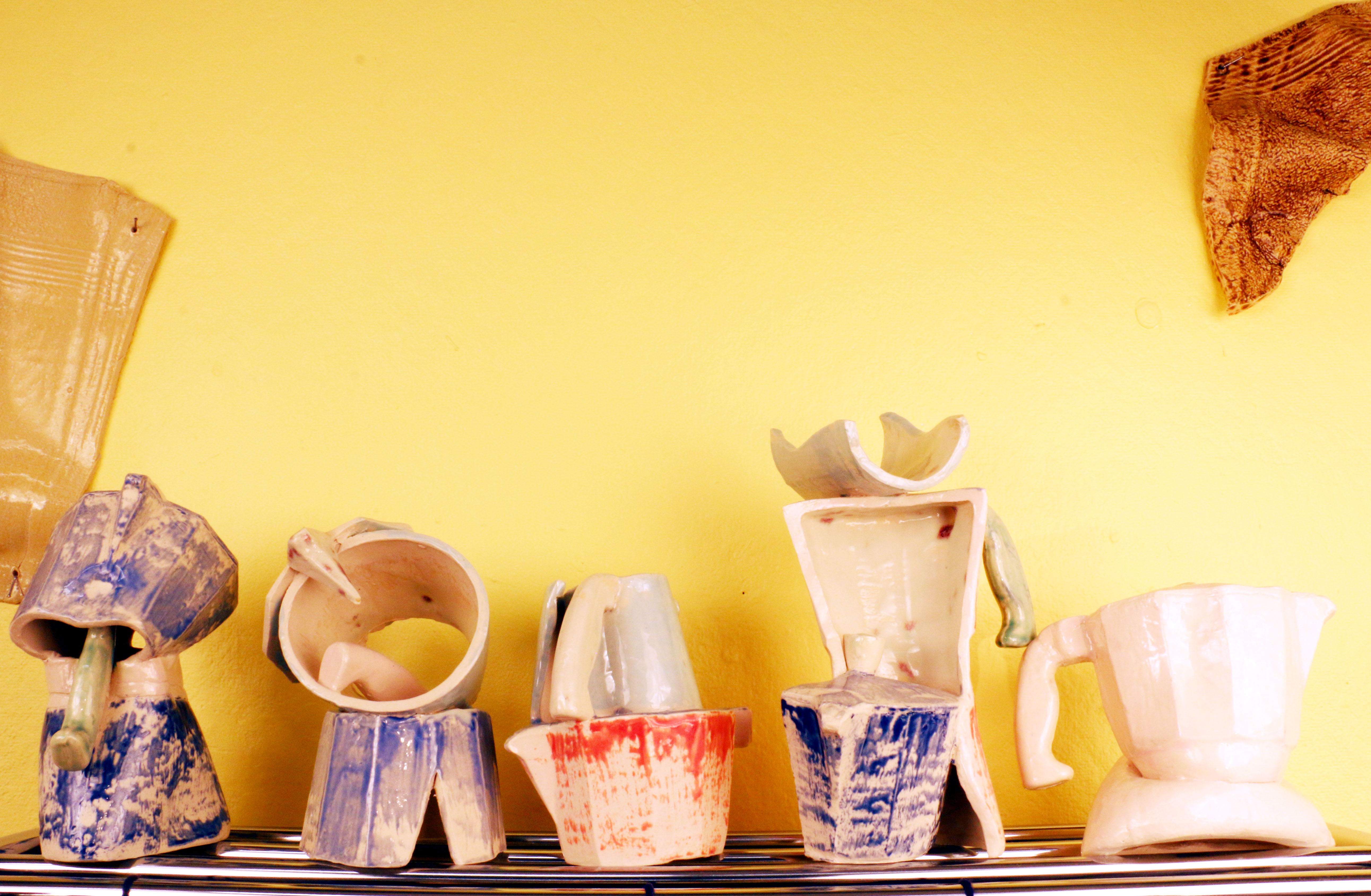
Like dad’s but not quite
Slip cast ceramic pots
Dimensions vary
2018
Hand built/manipulated and glazed ceramic coffee pots
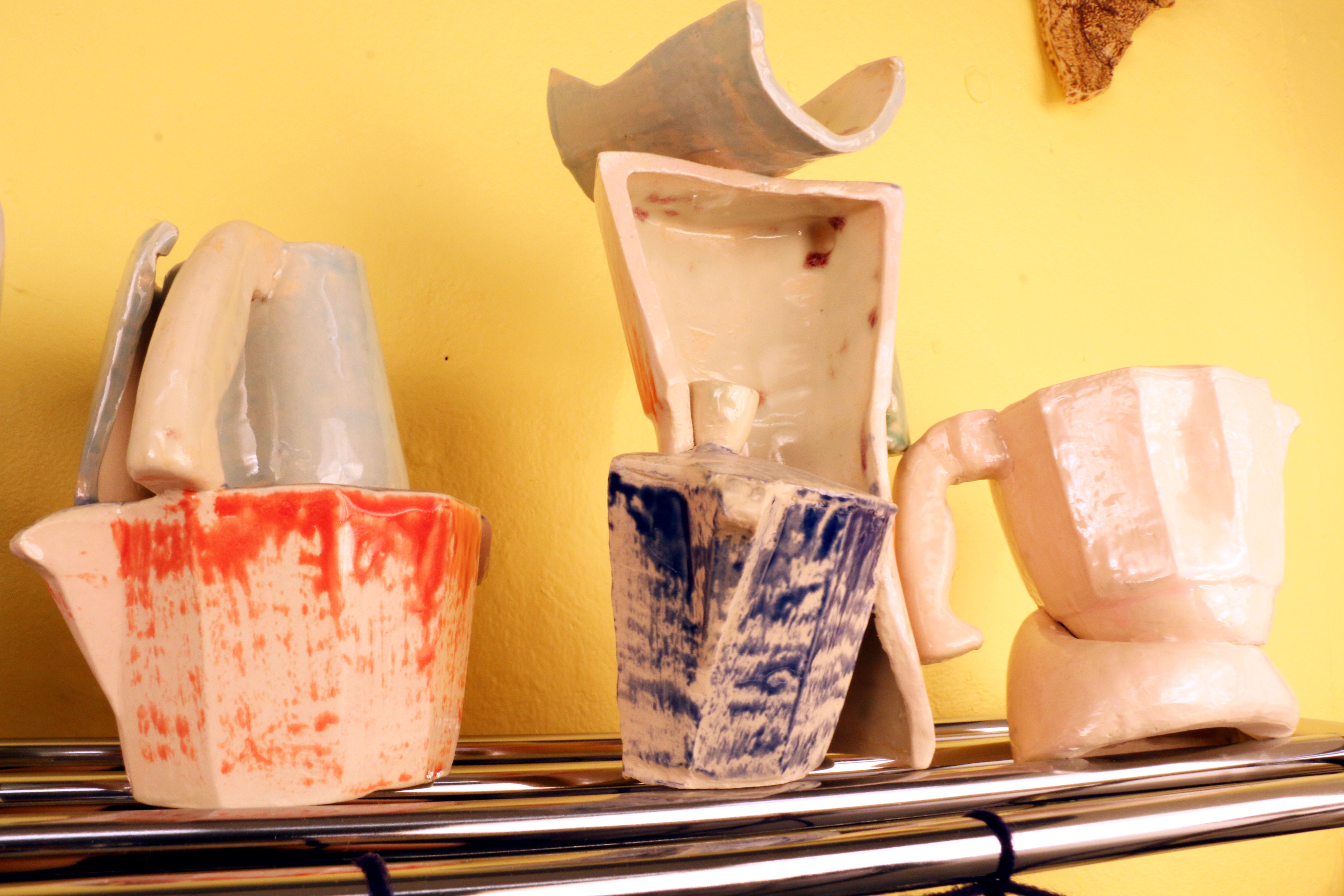
Like dad’s but not quite
Slip cast ceramic pots
Dimensions vary
2018
Hand built/manipulated and glazed ceramic coffee pots
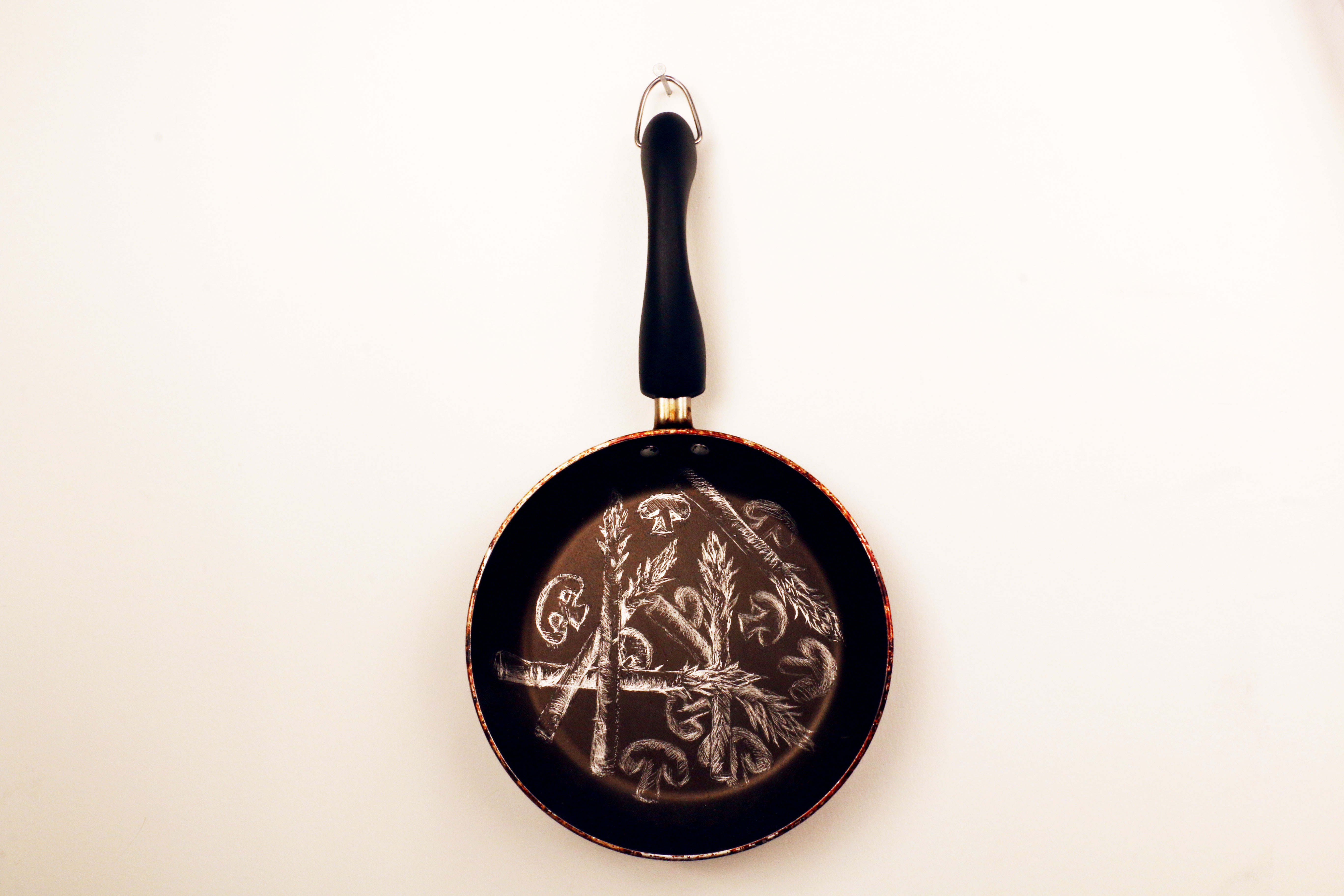
Imminent cuisine
Hand etched frying pan
12-inch frying pan
2018
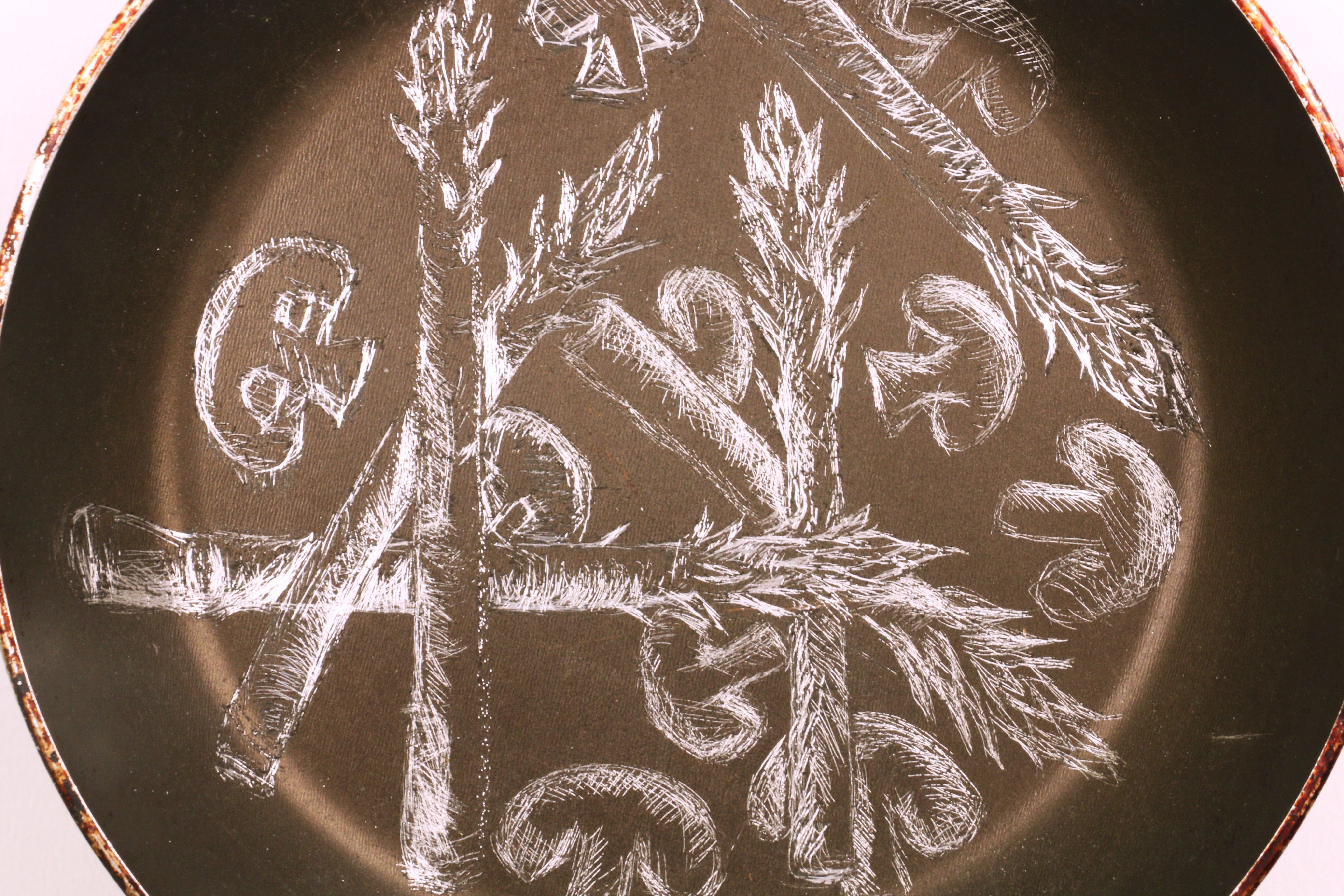
Imminent cuisine
Hand etched frying pan
12-inch frying pan
2018
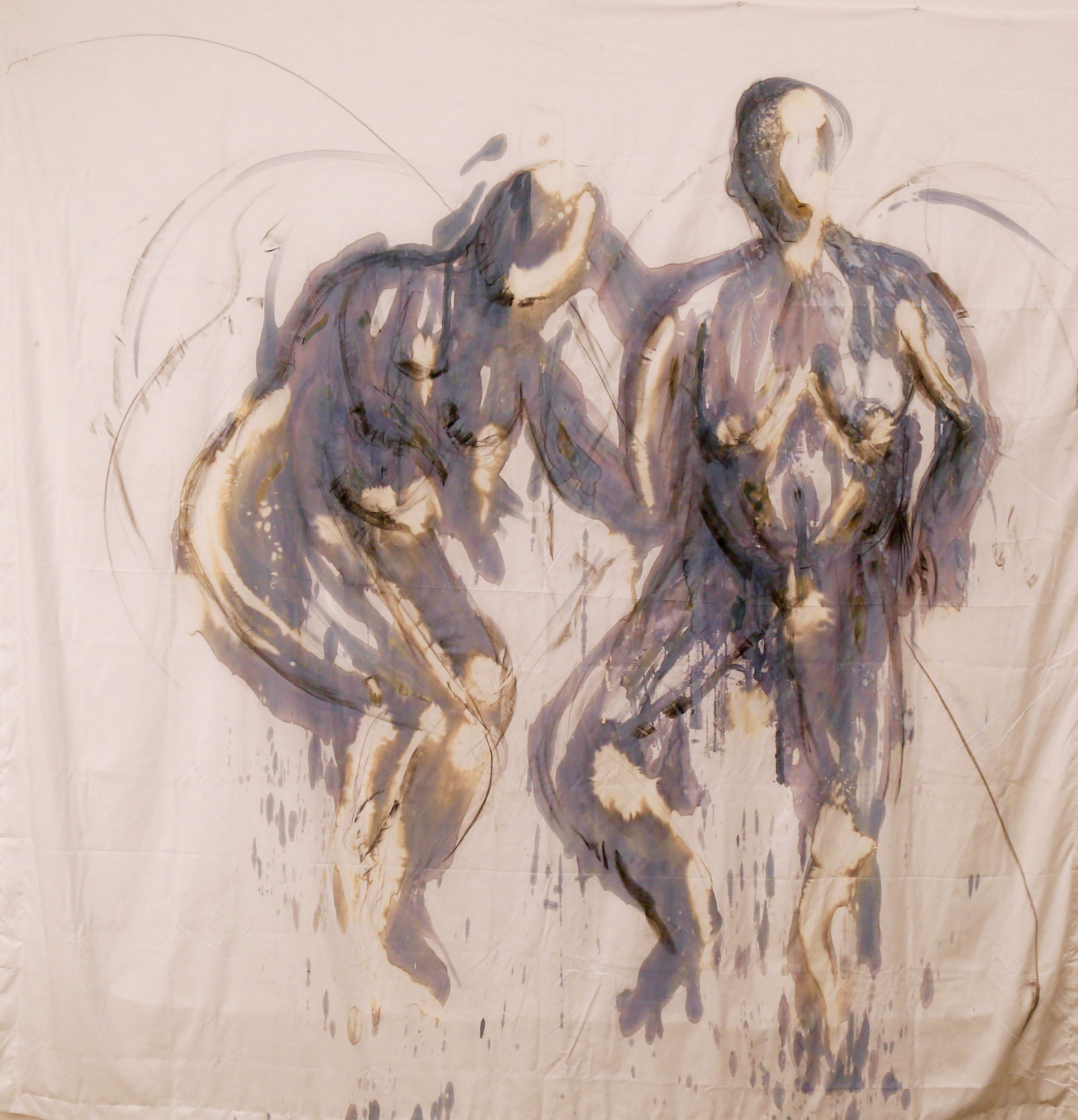
What was left behind?
Ink, bleach, wood glue and charcoal on a queen-sized bed sheet.
60” by 80”
2018
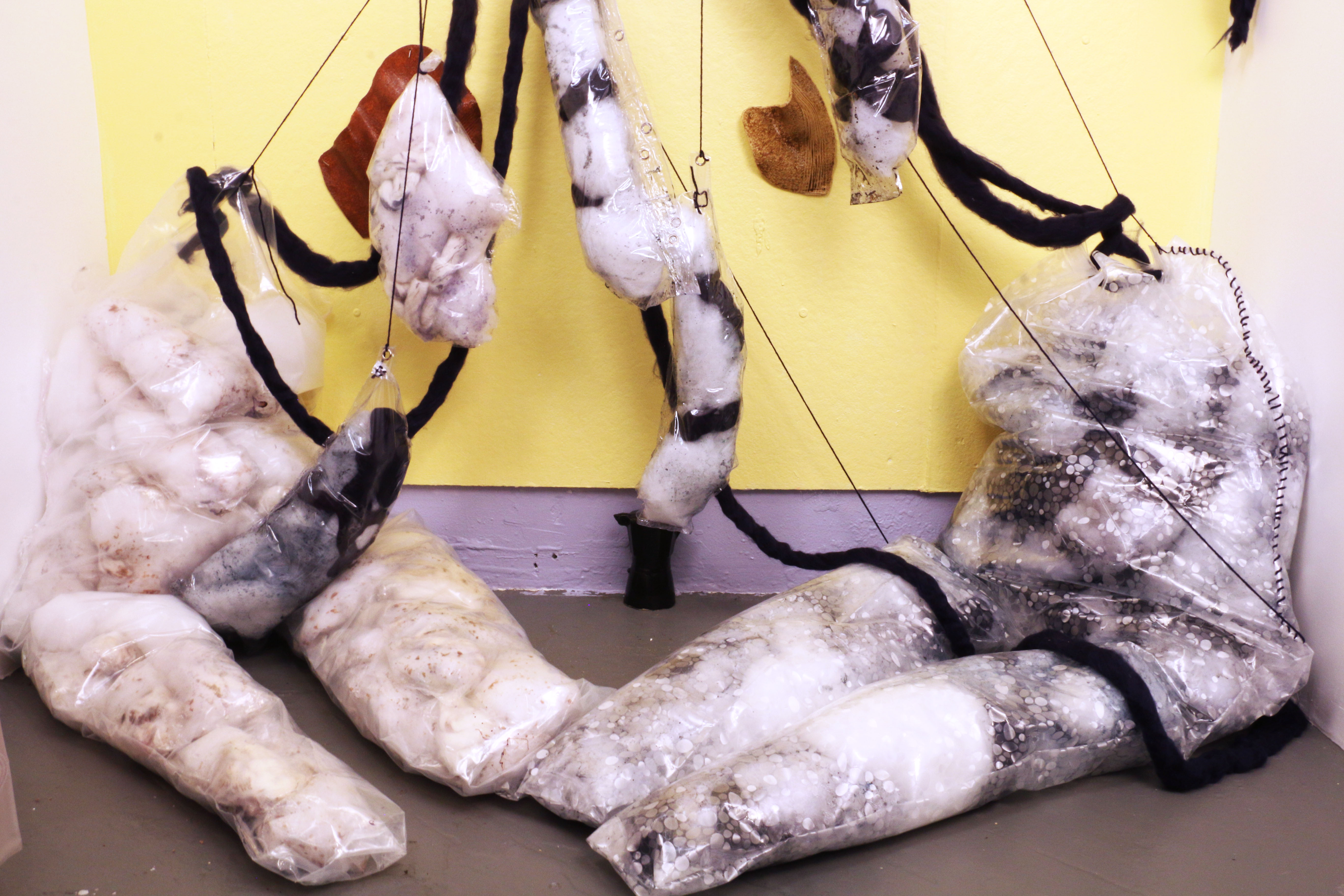
The space between them
Shower curtains, poly-fill, wool, yarn, ink, glue and mineral oil
Dimensions vary
2019
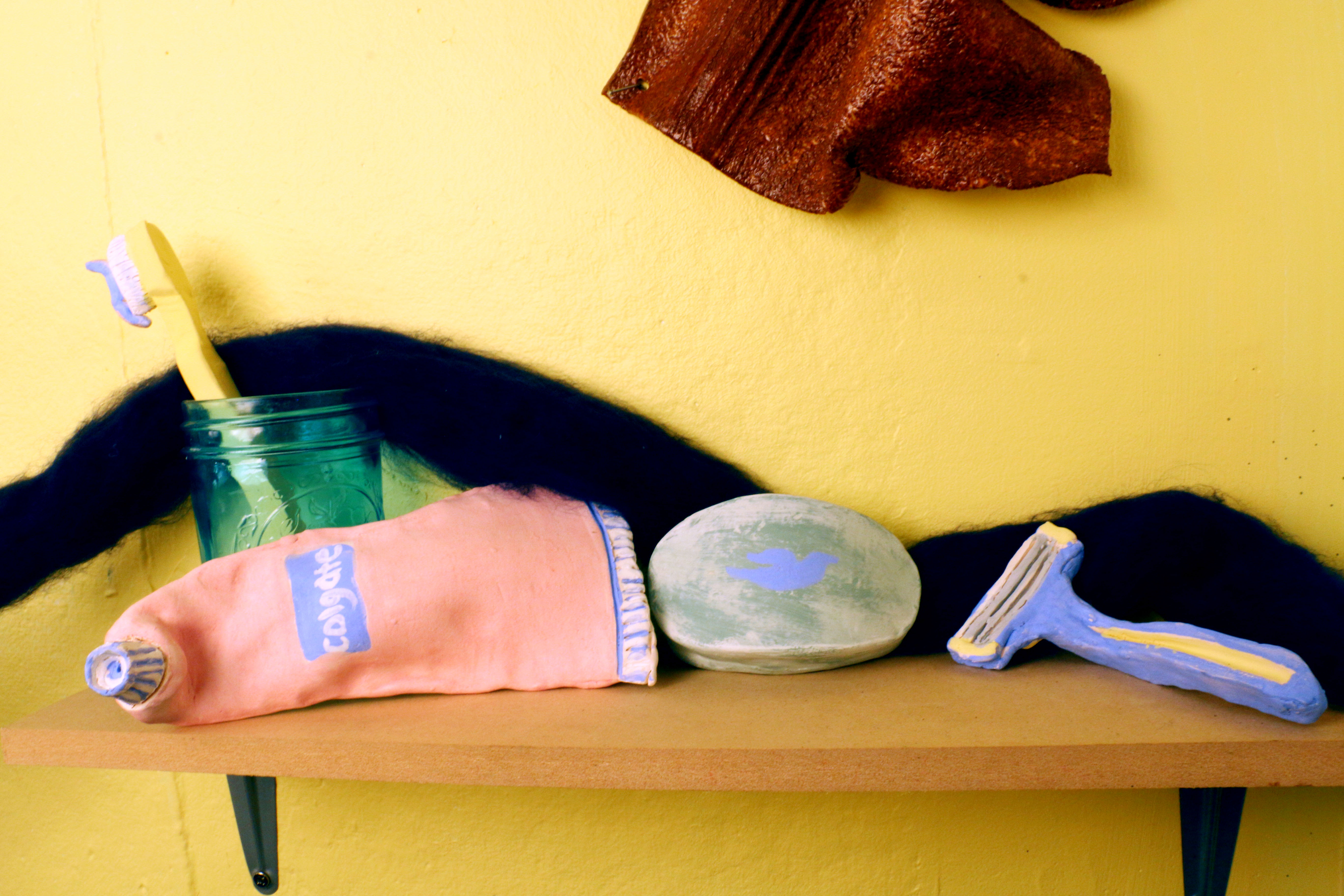
Who Lives Here?
Hand built ceramic sculptures
Dimensions vary
2018
Artist Statement
Configuartions of queer care, chosen family, and support systems and their relationship to queer domestic spaces are addressed in my work through painting and ceramics. Through portraying and manipulating household objects like frying pans, shower curtains and bed linen, I create a domestic space that is fluid through material experimentation. There is a non-productivity to these objects they have been abstracted and removed from their intended and marketed use, much like the queer body in regards to the idea of the “Nuclear family”. I see a correlation between the queer body and that of the non-functional object because they have both been removed from their intended use as well as their profitability.
I am interested in illustrating the mutual erasures that connect queer identity and domestic space. I question ideas that surround mainstream ideals of reproductive family units which are often a site of trauma for queer people who reject hetero and homonormativity. Through my work, I ask: does being queer evoke a death drive of sorts because of lack of reproduction and what does it mean to create your own sense of kinship outside of legal and biological ideas of the family? I am interested in how these explorations of household objects and support systems can transform future concepts of space and identity.


